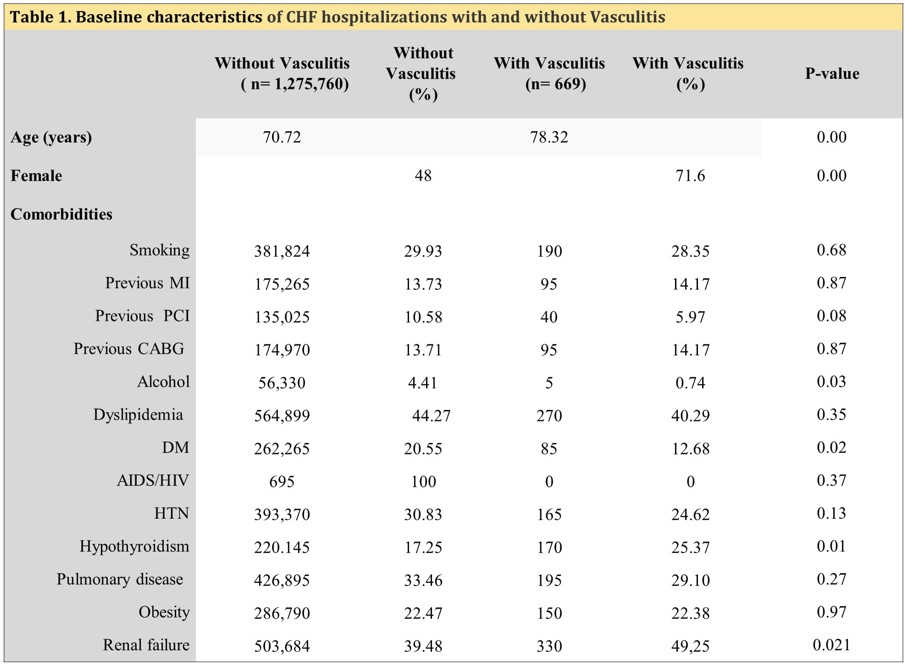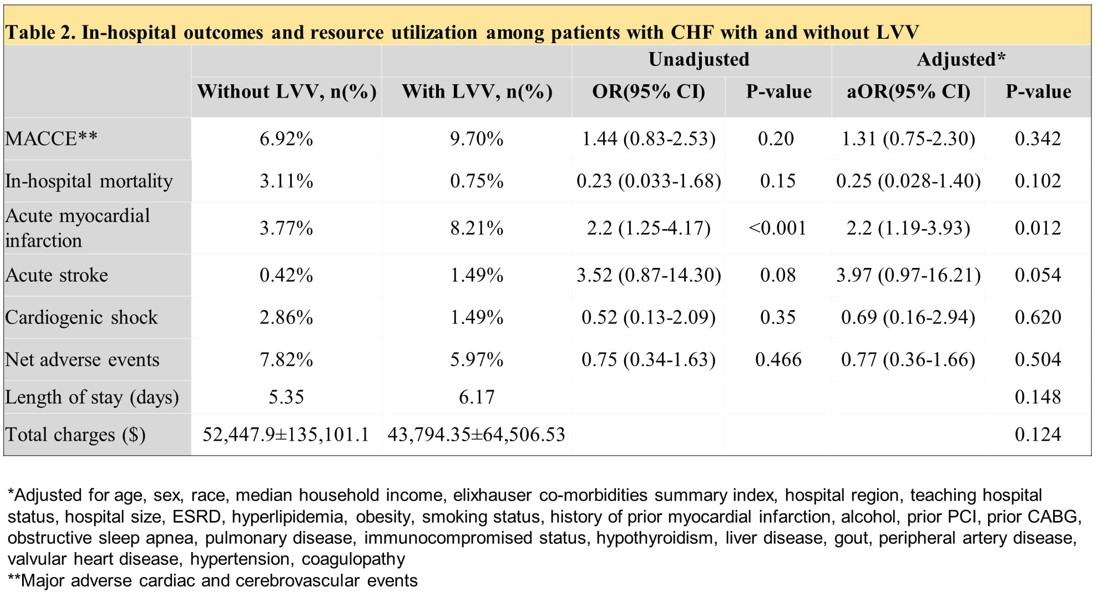Session Information
Date: Sunday, November 12, 2023
Title: (0691–0721) Vasculitis – Non-ANCA-Associated & Related Disorders Poster I
Session Type: Poster Session A
Session Time: 9:00AM-11:00AM
Background/Purpose: Cardiac disease has been known to be a major morbidity and mortality cause in vasculitis. Large vessel vasculitis is mostly associated with pericarditis, myocarditis and valvular disease. The impact of association between LVV and CHF is less studied. 15-50% of Takayasu arteritis patients have aortic insufficiency and cases have been reported where patients present with acute congestive heart failure secondary to aortic insufficiency as their presenting symptom. On the other hand, the incidence of cardiac involvement in Giant Cell arteritis is less compared to Takayasu. Generally, there is a paucity of data due to the rarity of cases. Our study attempted to determine the association of CHF and LVV in one of the largest datasets available in the country.
Methods: National inpatient sample database from 2016-2019 was queried to identify patients with a primary diagnosis of CHF and stratified based on the presence of LVV. The adjusted odds ratios (aOR) of in-hospital outcomes were calculated using chi-square statistics in software STATA v.17.
Results: Of 1,276,429 patients with CHF, 669 had LVV (Giant cell arteritis: 619 and Takayasu arteritis: 50). CHF with LVV patients were older (78.32 vs 70.72, p-value 0.00) and predominantly female (71.6% vs 48%, p-value 0.00). On adjusted analysis, compared to non-LVV patients, LVV patients had significantly higher acute myocardial infarction (AMI) (aOR 2.2, 95%CI 1.19-3.93). There was no difference in major adverse cardiac and cerebrovascular events (aOR 1.31, 95%CI 0.75-2.30), in-hospital mortality (aOR 0.25, 95% CI 0.028-1.40), stroke (aOR 3.97, 95% CI 0.97-16.21), or cardiogenic shock (aOR 0.69, 95%CI 0.16-2.94) between the two groups.
Conclusion: Large vessel vasculitis has no effect on in-hospital outcomes in CHF patients, except for a significant increase in risk for AMI.
To cite this abstract in AMA style:
Raksadawan Y, Usmani S, Sandhyavenu H, Goni T, Patel J, Waqar Younas H, Taha A. Large Vessel Vasculitis Increases Risk of Acute Myocardial Infarction in Patients Admitted for Congestive Heart Failure : A Nationwide Inpatient Database Study [abstract]. Arthritis Rheumatol. 2023; 75 (suppl 9). https://acrabstracts.org/abstract/large-vessel-vasculitis-increases-risk-of-acute-myocardial-infarction-in-patients-admitted-for-congestive-heart-failure-a-nationwide-inpatient-database-study/. Accessed .« Back to ACR Convergence 2023
ACR Meeting Abstracts - https://acrabstracts.org/abstract/large-vessel-vasculitis-increases-risk-of-acute-myocardial-infarction-in-patients-admitted-for-congestive-heart-failure-a-nationwide-inpatient-database-study/


